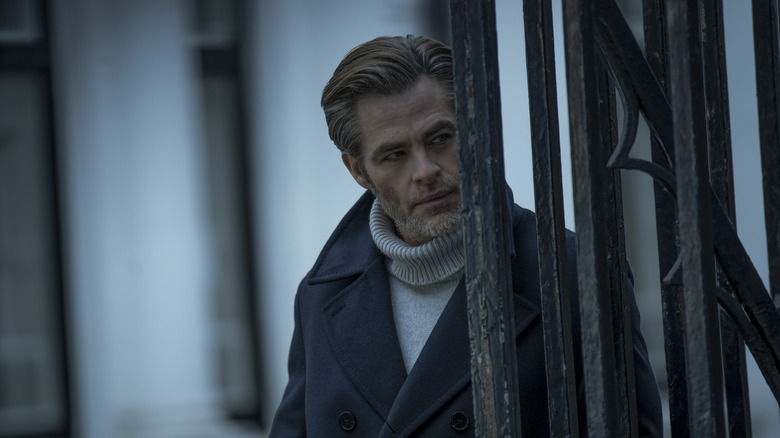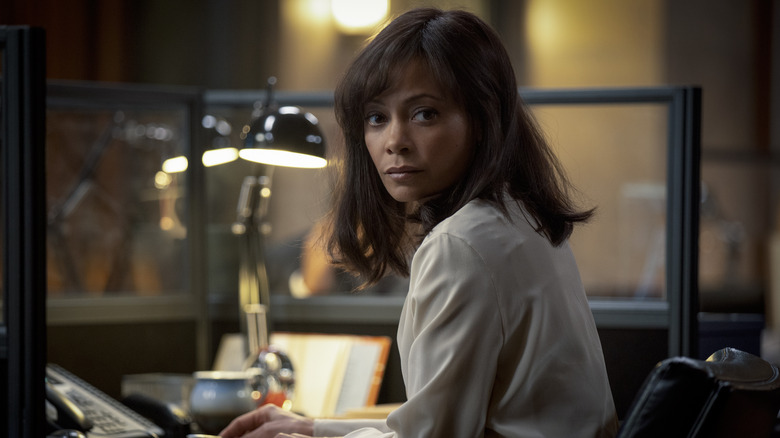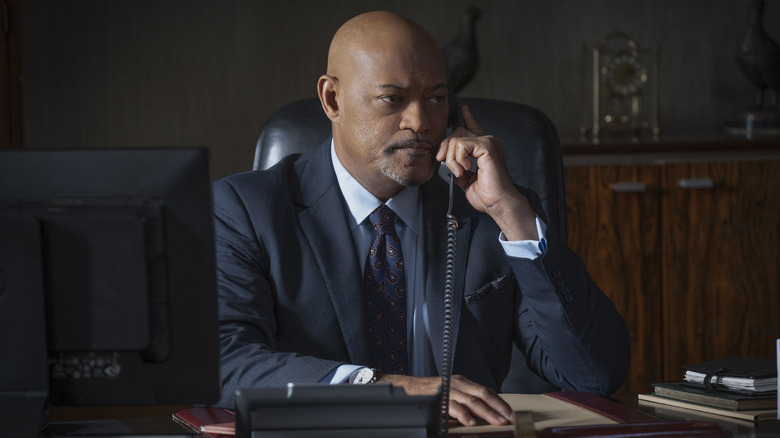All The Old Knives Review: Chris Pine And Thandiwe Newton Are Terrific In This Somewhat Unmemorable Thriller
Janus Metz's "All the Old Knives" exists comfortably at the intersection between airport novels and the works of Claire Denis. It is downbeat, emotionally intense, and only slowly reveals its plot — told wildly out of chronological order, often inserting flashbacks inside of flashbacks — over the course of its first 45 minutes. But more than merely obfuscating for its own sake — a pit that lesser thrillers can often fall into — "Old Knives" wisely remains more closely focused on the relationship between Henry (Chris Pine) and Celia (Thandiwe Newton), two ex-CIA agents and former lovers, who decide to reconnect eight years after an attempt to stop a terrorist hijacking when horribly awry. The details of the botched operation are central to the plot (it involves a hostage situation on a plane, a mysterious unseen inside man, and a CIA mole who may or may not be in league with the terrorists) and Metz almost playfully gives the audience facts in a steady drip of information as to just how badly everything went down eight years ago ... but he will always cut back to Pine and Newton, sitting in a posh NorCal wine-country restaurant, trying to size each other up and surmise just how trustworthy this meeting actually is.
The restaurant scenes are where "Old Knives" displays its most wit. Newton and Pine are experts in creating a relationship between their characters wherein they still have affection, are clearly trying to be friendly, but just as clearly don't trust each other. Once a CIA spook, always a CIA spook. Newton figures out pretty quickly that their reunion has less to do with celebrating old times than investigating, even at this late date, an eight-year-old debacle they were both partially responsible for. Newton and Pine bring the necessary emotional heat to make these scenes function. It helps that we also see their affair in flashbacks, learning the depth of their affection and, importantly, how good the sex was.
The CIA plot is, however, a mere collection of familiar spy tropes wherein stern-faced government agents gather regularly around a dimly lit table, look up at a TV screen displaying a terrorist crisis, and gravely say lines of dialogue like "Okay, what are our options?" If you've ever read an airport novel, the terrorist storyline will feel familiar; even trite. That it's based on an airport novel — by Olen Steinhauer, who also wrote the screenplay — comes as no surprise. The CIA plot is not so much twisty, as it is tangled up all-too-clear, painful memories.
Obfuscation is not a crime
The opening of "Old Knives" begins in 2020 (although there is no mention of COVID-19) and Henry is tasked by his boss (Laurence Fishburne) to finally close the case on the Flight 127 debacle from 2012. New evidence has pointed to the potential identity of a mole who sold out the CIA, and led to ... well the actual details of Flight 127 are kept hidden. Henry must investigate two old co-workers: The nervous, pub-dwelling Bill (Jonathan Pryce) and his secret ex-girlfriend Celia. This is less about meting out justice as it is the CIA requiring a scapegoat for a bad operation.
"All the Old Knives" will cut between the events of Flight 127 (and the exploration of potential mole agents, also including Ahd Kamel and David Bedella), the dinner Henry has with Celia, the things Celia and Henry were doing separately on the day of Flight 127 (as mentioned: flashbacks within flashbacks), and an "interflash" to the moments right before Celia and Henry gather to dine, wherein they reveal they might have been setting up more than we initially realize.
It's a straightforward story told in a convoluted way, although that is not necessarily a weakness. Because the central relationship is so strong — Pine and Newton are genuinely terrific as lovers who love, hate, respect, lust after, and fear one another equally — the screenwriters' metagrobolism serves an emotional function: The true depths of what they survive and what they know about each other deepens every tiny interaction they have as the film progresses. By the end, every word has portent, and Pine and Newton approach every interaction with adult maturity, not action-movie revenge spite.
Sundown
"All the Old Knives" most notable misstep, however, is its somewhat turgid tone. The pervasive sadness that lingers over the dinner scenes is wholly appropriate, and it penetrates as intensely as the setting sun right outside the window (the dinner lasts into the night). What's missing is a sense of "zip" to the spy sequences. This should be intense, clear, open-handed, and maybe even a little playful. The energy levels are kept aggravatingly low during the CIA scenes, leaving too little to differentiate them from the bookend material.
The capable photography (by Charlotte Bruus Christensen) only gives us a few visual hints as to the different timelines we are visiting, and the incapable score (by Rebekka Karijord and Jon Ekstrand) fills the audience's brains with flavorless strings and melodramatic chords. "All the Old Knives" might have benefitted from flat, un-dynamic shots, and a few moments of strategic silence.
Had "Old Knives" managed to function as a corker of a spy thriller in addition to being an intense conversational drama, it could have emerged as something special. At the end of the day, however, one will walk away satisfied with the characters and moved by a bleak and tragic ending, but left with little to carry in their memory. Ironically, a film about the painful suspicions of the past and the aching nature of memory is largely unmemorable.
/Film Rating: 6.5 out of 10


